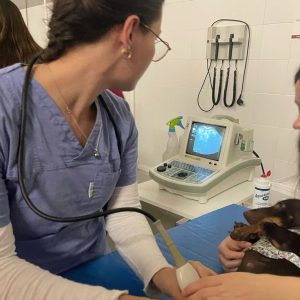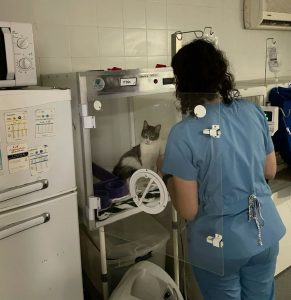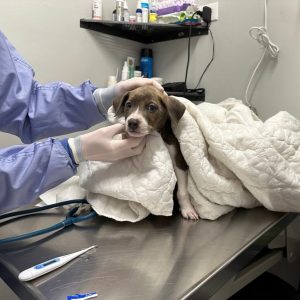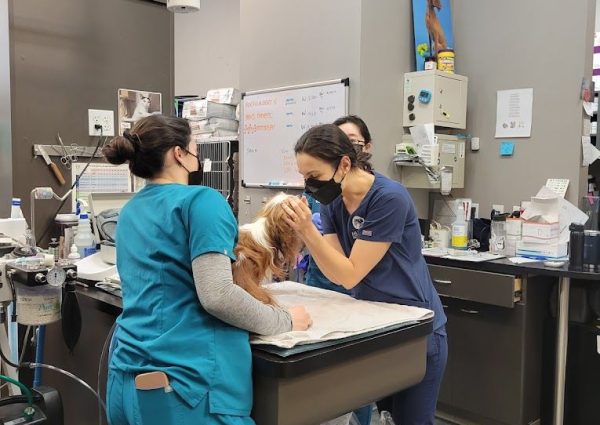Medical Laboratory Department
Welcome to the MLD at Vyar Institute
Here is What to Know
The Veterinary Department at Vyar Institute for Science and Technology is dedicated to the study of animal health, welfare, and biomedical sciences, preparing students to play a vital role in protecting both animal and human well-being. Through a balanced approach of theoretical learning, laboratory work, and field training, the department cultivates skilled veterinary professionals capable of addressing the healthcare needs of domestic and farm animals across Kurdistan and beyond.
Our two-year Veterinary Diploma Program equips students with practical knowledge and experience in animal anatomy, physiology, pathology, microbiology, pharmacology, and clinical medicine. Graduates emerge ready to contribute to veterinary clinics, farms, research institutions, and public health organizations.
At Vyar Institute, we aim to create compassionate, knowledgeable, and capable professionals who understand the deep connection between animal health, food safety, and community welfare.
Our Beloved Cured Animals



Compassion: Promoting humane and ethical treatment of all animals.
Integrity: Maintaining professional and ethical standards in animal care.
Scientific Excellence: Striving for mastery in veterinary science through rigorous learning and practice.
Service: Supporting community health through animal welfare and disease prevention.
Innovation: Encouraging new methods in animal diagnostics, treatment, and research.
During the final semester, students undertake field training and internships at partner veterinary clinics, farms, and animal health centers.
Objectives of Field Training:
Apply classroom knowledge to real animal health situations
Practice disease diagnosis and treatment under supervision
Learn farm management and biosecurity measures
Perform laboratory tests and field sample analysis
Build teamwork and communication skills in clinical settings
Field Training Locations Include:
Veterinary Hospitals and Clinics
Poultry and Livestock Farms
Public Health and Food Safety Departments
Animal Research and Diagnostic Laboratories
Graduates of the Veterinary Department at Vyar Institute are prepared for employment in:
Veterinary Clinics and Animal Hospitals
Livestock and Poultry Farms
Public Health and Food Safety Organizations
Research Laboratories and Diagnostic Centers
Pharmaceutical and Animal Feed Companies
Wildlife and Conservation Agencies
NGOs and International Veterinary Programs
Curriculum Structure
The Veterinary Diploma Program is structured over four semesters, combining classroom instruction, laboratory sessions, and field training. Each semester builds upon scientific foundations while developing practical veterinary skills.
Fundamentals of Veterinary Science
Anatomy and Physiology of Domestic Animals I
General Chemistry and Biochemistry
Animal Husbandry and Welfare
Introduction to Microbiology
Anatomy and Physiology of Domestic Animals II
Veterinary Pathology and Histology
Veterinary Parasitology
Animal Nutrition and Feeding Practices
Farm Management
Veterinary Microbiology and Immunology
Pharmacology and Therapeutics
Clinical Diagnostics and Laboratory Techniques
Epidemiology and Zoonotic Diseases
Reproductive Physiology and Animal Breeding
Veterinary Internal Medicine
Surgery and Clinical Practice
Preventive Veterinary Medicine
Public Health and Food Hygiene
Internship / Field Training
Short-Term Extension Courses
Duration: 3 months
Content:
Physical examination and diagnosis
Surgical procedures and wound management
Animal anesthesia and recovery care
Case documentation and reporting
Nutritional requirements of livestock
Feed formulation and quality assessment
Diet management for productivity and health
Duration: 3 months
Content:
Blood, fecal, and tissue sample analysis
Bacteriological and parasitological testing
Laboratory safety and quality control
Duration: 3 months
Content:
Prevention of zoonotic diseases
Vaccination strategies and surveillance
Food hygiene and safety inspection
Veterinary contribution to public health
